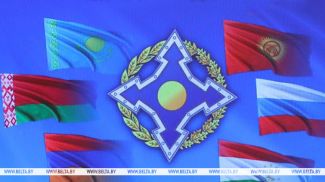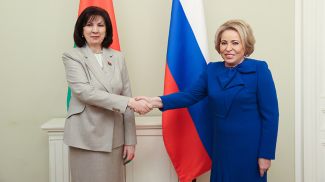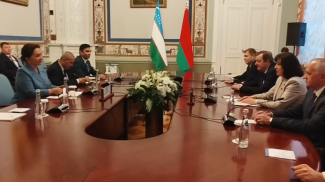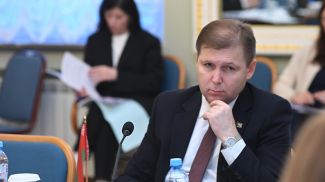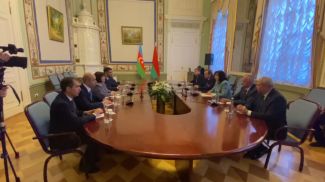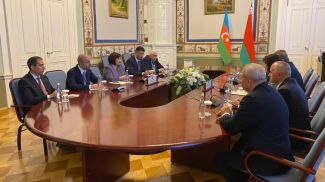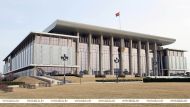MINSK, 24 June (BelTA) – Belarus has plans to once again approach some countries and bring up the issue of responsibility of the SS members, Belarus' Prosecutor General Andrei Shved told reporters before the 32nd meeting of the Coordination Council of Prosecutors General of the Commonwealth of Independent States (CIS), BelTA has learned.
Andrei Shved noted that Russian colleagues analyzed a huge number of archival documents and prepared tentative findings related to the genocide of the Belarusian people. Belarusian investigators are working with these documents. “We have now synchronized our actions taking into account the procedural documents that we signed; our investigators are working on it almost on a daily basis. One of our tasks is to establish criminals who are still alive. Our Russian colleagues have enough detailed information on this issue and we intend to use it to make another attempt to address some states where SS members still live, and again raise the question of their responsibility, since genocide has no statute of limitations,” Andrei Shved said.
When asked whether some legal action can be brought if a number of countries refuse to cooperate with Belarus on the genocide case, Andrei Shved answered in the negative. “I do not think so, because this is the policy of their governments to use Nazi ideology as an element of their official policy,” he said.
“Unfortunately, when such things are decided at the government level, when a government believes that holding the SS accountable harms the political interests of their state, we realize that our attempts to do something about it in the legal field will be futile,” the prosecutor general noted. “Yet, the public should know, people should know. Therefore, we will keep this matter on the boil,” he added.
According to him, there are a lot of descendants of the winners of the war in these states and they are interested in establishing justice. Many of them are relatives of people who went through the horrors of concentration camps, were tortured and beaten. “They are also interested and help us obtain evidence,” the prosecutor general said.
Andrei Shved said that a group of prosecutors had already traveled to Moscow three times to work in the archives. Another working visit will take place next week.
In addition, Russian colleagues are interested in the information that the Belarusian Prosecutor General's Office receives. “We have a huge amount of information as we perform a series of procedural actions throughout the country every day. These are ongoing interrogations of living witnesses. More than 15,000 people have already been interrogated by now. Hundreds of inspections of places of mass destruction have been undertaken,” the prosecutor general said.
Now the country is mounting a massive effort to re-bury and perpetuate the memory of the dead.
“During the inspection of a number of mass graves, including those near Minsk, we try to identify the dead, including the Red Army soldiers. Those were citizens of Russia, Kazakhstan, Uzbekistan. Unfortunately, I assume this mournful list will grow bigger. On the other hand, thanks to our work relatives, descendants of heroes, especially the Red Army soldiers, commanders of the Red Army learn about the fate of their grandfathers and great-grandfathers,” Andrei Shved noted.
Taking part in the coordination council meeting are delegations of the Prosecutor General's Offices of Azerbaijan, Armenia, Belarus, Kazakhstan, Kyrgyzstan, Russia, Tajikistan, Uzbekistan, as well as the Secretariat of the CIS Coordination Council of Prosecutors General.
According to the prosecutor general of Belarus, the existing challenges and threats necessitated some adjustments to the agenda of the meeting. A number of new issues were included, like counteraction of genocide, rehabilitation of Nazism, fight against cybercrime, protection of human rights, life and freedom, etc.




